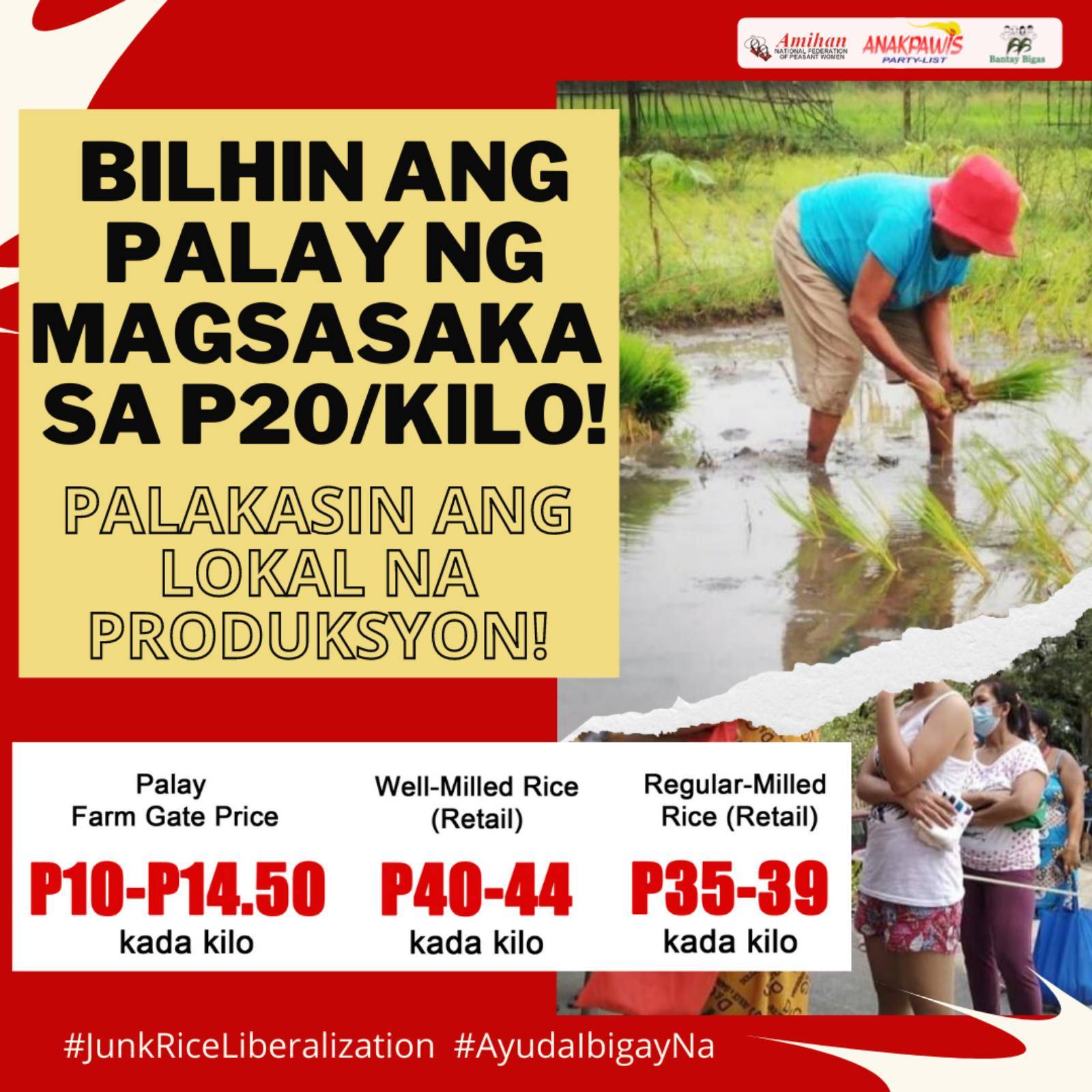“The increasing rice prices and the drop in palay farm gate price prove that the Rice Liberalization Law enacted by Duterte in 2019 have only caused suffering for both producers and consumers contrary to the claims of its proponents,” Amihan National Federation of Peasant Women and Anakpawis Partylist secretary general Cathy Estavillo said.
Recent reports by the Philippine Statistics Authority (PSA) said that while the average wholesale price of rice from January to June 2021 dropped by 1.9 percent from P38.19 per kilo in the same period last year to P37.48 per kilo it has been on an upward trend since March.
The average retail price of rice for the first six months of 2021 was P42.25 per kilo which was 1 percent higher compared to the P41.85 per kilo of the same period last year.
PSA likewise reported that in the National Capital Region, average wholesale price of rice increased by 0.8 percent from P33.23 to P33.51 per kilo while the average retail price of rice grew by 2.7 percent to P42.61 per kilo.
In a public market in Pasig City, well-milled rice ranges from P40-44 per kilo while regular-milled rice ranges from P35 to P39 per kilo.
“We could only blame the liberalized rice industry and the country’s dependence on rice importation. Rice self-sufficiency rate dropped to 79.8 percent in 2019 compared to 95 to 97 percent before the Rice Liberalization Law while import dependency rate surged to 20.2 percent in 2019. Dati, may P27 at P32 per kilo na NFA rice pero mula nang ipatupad ang Rice Liberalization Law, nawala na rin ito sa mga palengke,” Estavillo said.
Estavillo added that the limited supply in the world market, including the decline of Vietnam’s rice exports and the increased logistics cost due to the pandemic are contributing factors to the rice price increase.
The groups, along with rice watch group Bantay Bigas reiterated its call to intensify local palay procurement as harvest season already started in some areas.
“The government should ensure that palay of local farmers is bought for at least P20 per kilo and improve post-harvest facilities to guarantee a more stable rice supply. Efforts should be focused on boosting the local food production by providing cash assistance and production subsidy to farmers as well as improvement of irrigation systems and post-harvest facilities to attain food security and self-sufficiency,” Estavillo added.
The groups demand the junking of the Rice Liberalization Law which undeniably caused damages in the local rice industry and the restoration of a regulatory mechanism through the NFA. The groups have been pushing for the enactment of House Bill 477 or the Rice industry Development Act (RIDA) and House Bill 239 or the Genuine Agrarian Reform Bill (GARB) as measures to genuinely address landlessness and food insecurity in the country.###

Please follow and like us:
